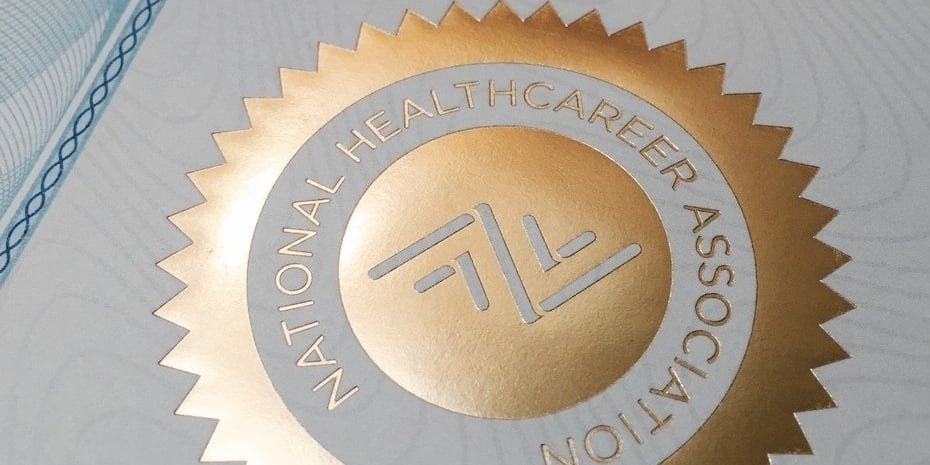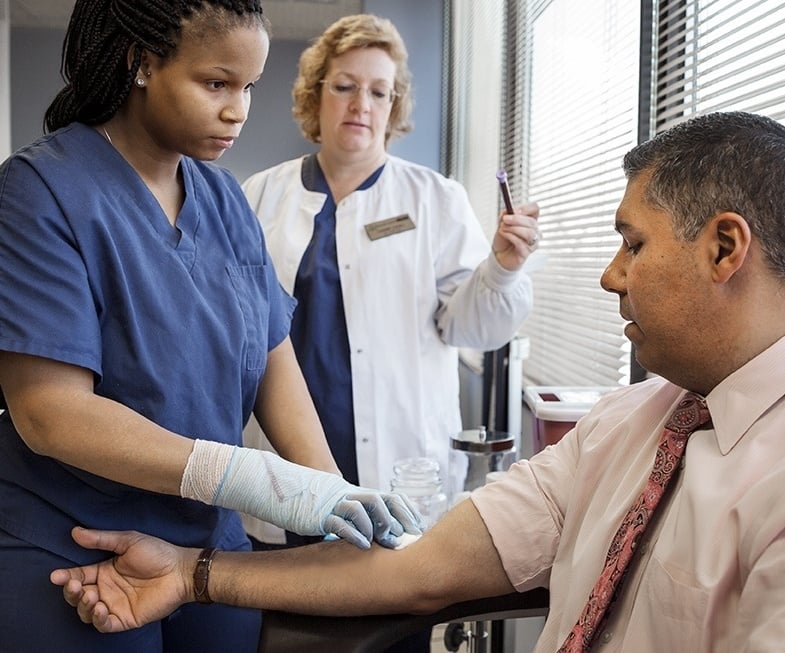Whether you’re just entering the work force or you’re hunting for a new job, standing out at each stage of the journey is key for increasing your chances of success. So, how do you set yourself apart among a stack of resumes? Show that your training and experience is backed by the most important essential soft skills for the role.
Patient Care Technicians/Assistants (CPCT/A) are critical in helping provide the day-to-day care that some patients require. This job requires a broad range of knowledge and skills, and is a vital role in caring for patients — especially those with chronic conditions.
When starting your allied health job search, it can be challenging to know where to begin. The good news is that there are a lot of resources available; the downside is that it can be overwhelming to comb through it all.
We shared seven common healthcare job interview questions with expert advice on how to answer them in the original post: Healthcare Job Interview Questions (and How to Answer Them). But the truth is, there are more than seven common questions to prepare for.
Putting in the time, effort and resources to earn an NHA certification can say something about your character and your capabilities. But how do you let people (especially hiring managers) know about your hard work and meaningful achievement?
We put together some tips to help you talk about your certification — both on your resume and in an interview — to empower you to make the most of your NHA certification.
It's natural to feel a little nervous about a job interview. Nerves, however, can hurt your performance in an interview if you don't prepare. So NHA turned to the experts for advice on overcoming interview set-backs.
From getting to know the company to following up after an interview here is a guide to interview success from experienced healthcare hiring managers on ways to stand out (the right way) before, during, and after the interview.
A question that comes up often for anyone completing their education or transitioning to a new allied health career is how to get that FIRST job.
Even though there is no “one right way” to land that first job, we’ve pulled together some strategies and actions you can take to demonstrate that you’re the right fit for the job you’re applying for.
When you're focusing on achieving your allied health career goals, it's easy to forget to refine a very important skills set — the kind that cannot be easily tested or measured: Soft skills.
Soft skills are your personal attributes that help you communicate and relate to your patients and healthcare colleagues. In a field that is focused on care, these skills are especially important as you work toward advancing in your allied health career.
Want to improve your soft skills? Here are five things to keep in mind every day on the job...
Searching for your next job is a big deal and can be an overwhelming task. If you feel like you’re not finding enough opportunities that match your skills you could be accidentally limiting your search.
Sometimes the job that lines up just right with your skills doesn’t have the exact job title that you’d expect. Because healthcare environments can all be a little different and any given position could have a unique mix of tasks, a job title could sound a little (or a lot) different than what it says on your certification.











